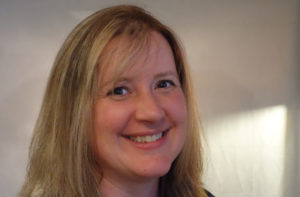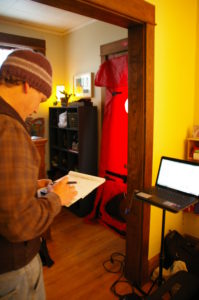Tap into the collective power of influential business and NGO pioneers to create new strategies and
tactics to build a more socially and environmentally conscious state.
Tap into the collective power of influential business and NGO pioneers to create new strategies and
tactics to build a more socially and environmentally conscious state.
The U.S. Green Chamber of Commerce is excited to bring you this series of sustainability leaders who are making a positive impact in Minnesota. Meet the people who are working to improve the environment in Minnesota and around the world. Click here to view all of our Minnesota Leaders.
Jodi Slick
Title:
Founder and CEO
Company or NGO Name:
Ecolibrium3
Region or City:
Duluth, MN- Northeastern MN

1. What is the mission of your company/NGO?
To lead and inspire change in our community toward an equitable and sustainable future.
2. What is the most innovative or environmentally/socially impactful project/practice your company/NGO has implemented?
Ecolibrium3 created the Duluth Energy Efficiency Program (DEEP) and a third-party project management model that raised post energy-audit recommendation uptake from 2% to 65%. We rapidly retooled this model to provide energy efficient and healthy home rebuilding for low income households after the June 2012 flood, earning White House Champions of Change recognition for building resilient communities.
 3. How have those projects positively impacted the local community or state?
3. How have those projects positively impacted the local community or state?
Ecolibrium3 has now helped over 1000 households reduce energy consumption. We strive to provide technical assistance and bundle available financial resources to make reducing energy and carbon as easy on the customer as possible. Our work has expanded to assisting households go solar. Although we serve all incomes, we bring additional resources to those dealing with energy poverty.
4. Please share any new projects you will be implementing in the near future.
Ecolibrium3 is best known for our energy work, but we are involved in many areas of resilience building. Currently, we are leading efforts to educate and respond to emerald ash borer, which will have significant impact on Duluth’s flood resilience, leading the development of a healthy housing approach to Duluth’s most challenged housing stock, working with industry to develop an advanced panelization system for energy efficient affordable housing, and advancing food system development at a neighborhood scale.
5. What are the biggest challenges you have faced when pursuing or trying to promote sustainable practices/projects?
One of the biggest challenges is finding consistent support for program development and implementation. Our programs have been models recognized by the EPA and DOE; however, success seen during one administration becomes verboten in the next. We have gone through cycles in which a program is funded, but we then have to redact words like “climate” to receive funds.
6. What are your top 3 career accomplishments?
Developing Douglas County, WI’s recycling program and assisting in creation of a 10 county household hazardous waste collection program.
Creating Common Ground, a construction company that trained low-income individuals in the trades while advancing green construction practices.
Developing Ecolibrium3 into a nimble organization advancing multiple aspects of community resilience and now serving as host to the Ecolibrium3 Resilience VISTA Corps.
7. What inspired you to choose your career path?
At my heart, I am a pragmatist. I approach most things from a point of view that says, “if this is good for xxx (people, environment, community, economy), then why don’t we yyyy?” My career path has been about leveraging resources and using design thinking to understand, and then get around, the barriers that have prevented us from doing what makes sense.
8. Personally—Why do you care about sustainability? What is your story?
I’ve been in meetings where this question is asked, and invariably each person has their story…”fishing with my grandfather, love of birds, etc.” I have often been very challenged by the question, because to me there has never been a point in which it didn’t seem like the only way to be. I honestly don’t understand how someone cannot care about sustainability.
9. What do you think are your biggest strengths as a leader in Sustainability?
I think that our success relates to vision, passion, and know how. We see there are solutions and help others understand how, by taking action, we can impact the things we care most about. When we focus on action, we have the ability to develop strong partnerships and breed the next success. I have been honored to work with amazing people that value a “can do” approach and bring the skills to get things done.
 10. What is/are the biggest incentive(s) for businesses in your area to adopt sustainable practices?
10. What is/are the biggest incentive(s) for businesses in your area to adopt sustainable practices?
We have found that helping businesses understand a clear path to sustainability, provided by a trusted third-party, is the greatest tool. Business owners can often get stuck when each vendor says their solution is best (refrigerator guy says you need new refrigerator, window guy says windows), not feeling confident in options often produces inaction. Having a trusted voice not interested in the “sale,” to advise you on best investments in sustainability, can often result in action and impact.
11. What is/are the biggest environmental or social challenge(s) facing Minnesota today?
There are many challenges we face, however as a voice from Greater Minnesota, if I can highlight just one, I would say that we currently experience 2 or 3 Minnesota’s when it comes to opportunities for a clean energy future. Due to a varied policy environment, opportunities for solar community gardens can be 1000X greater in the metro compared to other parts of the state. We need greater equity for all.
12. What is the most positive action Minnesota has taken to positively impact its environment or social wellbeing?
Passing the Next Generation Energy Act in 2007 was key to sending Minnesota on the pathway to renewable energy and carbon reduction. Creating bi-partisan action on climate and energy should be the norm, not the exception. My hope is that we can move toward an equitable deep decarbonization that builds greater economic and environmental resilience for all Minnesotans regardless of socio-economic status or geographic location.
Bonus Questions:
1. What are your thoughts on climate change? What is your company/organization doing to help bring awareness or to help mitigate climate change?
I had an opportunity to write a blog entry for the White House in 2013, my thoughts on climate change have not waivered, “Climate change is real. The costs are high. The time to invest in resiliency is now.” Our DEEP program and solar work reflect mitigation, but we also work hard to advance the understanding of, and action toward, adapting our community to the current and future impacts of climate change.
2. How dedicated are Minnesota’s businesses to corporate social responsibility? List some practices you think would be helpful.
I am proud that so many Minnesota businesses take corporate responsibility and sustainability so seriously. I recommend that businesses leverage their corporate responsibility dollars to invest in their communities in addition to any national work they do. Find organizations that are on the ground, creating impact, and support them. I also recommend seeking out trusted third-parties and/or creating a staff position to advise on sustainability actions.
3. What has been the most enjoyable part of your role/position/career?
The most enjoyable part of my career has been working with incredible people that care about others and our environment. The most challenging was helping flood affected families rebuild their homes in a manner that was more efficient and resilient than prior to the disaster. Feeling the pain and seeing the challenges was some of the most difficult work I’ve done, but at the end of the day, knowing that Ecolibrium3 played an important role in family’s rebuilding their lives has been the most rewarding experience of my career.
To learn more, please visit Ecolibrium3 on LinkedIn, Twitter and Facebook:
LinkedIn: Jodi Slick
Twitter: @ecolibrium3 and @SlickJodi
Facebook: Ecolibrium3 and Our Lincoln Park